Ism, Ism, Ism: Talleres: Experimental Women Filmmakers from Latin America
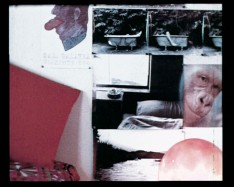
Taller, by Narcisa Hirsch (1975)
Thursday November 30, 2017, 7:30 pm
Los Angeles Filmforum and the Hammer Museum present
Ism, Ism, Ism: Talleres: Experimental Women Filmmakers from Latin America
Guests: Curator Ángela López Ruiz, filmmakers Poli Marichal and Vivian Ostrovsky
Tickets: Free, no RSVP needed. Tickets are required and available at the Box Office one hour before the program. General admission tickets are available one per person on a first come, first served basis following member ticketing. Early arrival is recommended.
More information: https://hammer.ucla.edu/programs-events/2017/11/talleres-experimental-women-filmmakers-from-latin-america, www.lafilmforum.org
This program showcases female filmmakers who sought to carve out a place within the male-dominated world of Latin American independent audiovisual production. Key works, such as Argentine filmmaker Narcisa Hirsch’s Taller (Workshop)(1975), exemplify the defiant position toward gendered and essentializing aesthetics expected of Latin American women filmmakers. This program includes pioneering Uruguayan filmmaker Lydia García Millán’s Color (1955), one of the first abstract experimental films from Latin America; the politically charged Super 8 experiments by Puerto Rican underground artist Poli Marichal; and recent video essays by Mexican artist Ximena Cuevas. Curated by Ángela López Ruiz.
This screening is in conjunction with the exhibition Radical Women: Latin American Art, 1960–1985, at the Hammer Museum, Sep 15-Dec 31, 2017
https://hammer.ucla.edu/exhibitions/2017/radical-women-latin-american-art-1960-1985/
Part of Pacific Standard Time: LA/LA, this exhibition will reappraise the contribution of Latin American women artists and those of Latino and Chicano heritage in the United States to contemporary art.
In a way that no other exhibition has done previously, Radical Women: Latin American Art, 1960–1985 will give visibility to the artistic practices of women artists working in Latin America and US-born women artists of Latino heritage between 1960 and 1985—a key period in Latin American history and in the development of contemporary art. Fifteen countries will be represented in the exhibition by more than one hundred artists, with 260 works in photography, video, and other experimental mediums. Among the women included are emblematic figures such as Lygia Clark, Ana Mendieta, and Marta Minujín alongside lesser-known names such as the Cuban-born abstract artist Zilia Sánchez, the Colombian sculptor Feliza Bursztyn, and the Brazilian video artist Leticia Parente. The artists featured in Radical Women have made extraordinary contributions to the field of contemporary art, but little scholarly attention has been devoted to situating their work within the social, cultural, and political contexts in which it was made. This groundbreaking exhibition will constitute the first genealogy of feminist and radical art practices in Latin America and their influence internationally, thereby addressing an art historical vacuum. Radical Women will also include a national tour and a scholarly publication.
Hammer Member Benefit: Members receive priority ticketing (until 15 minutes before the program) by skipping the general admission line and can choose their seats, subject to availability. Parking: Under the museum, $6 flat rate after 6 p.m. Cash only.
Food and drink may not be carried into the Billy Wilder Theater. Read our food, bag check, and photo policies.
This screening is part of Los Angeles Filmforum’s screening series Ism, Ism, Ism: Experimental Cinema in Latin America (Ismo, Ismo, Ismo: Cine experimental en América Latina). Ism, Ism, Ism is an unprecedented, five-month film series—the first in the U.S.—that surveys Latin America’s vibrant experimental production from the 1930s through today. Revisiting classic titles and introducing recent works by key figures and emerging artists, Ism, Ism, Ism takes viewers on a journey through a wealth of materials culled from unexpected corners of Latin American film archives. Key historical and contemporary works from Argentina, Brazil, Bolivia, Chile, Colombia, Cuba, Ecuador, México, Paraguay, Perú, Uruguay, Venezuela, Puerto Rico and the United States will be featured. Many of the works in the series are largely unknown in the United States and most screenings will include national and area premieres, with many including Q&A discussions with filmmakers and scholars following the screening. The film series will continue through January 2018 at multiple venues, organized by Filmforum. www.ismismism.org
Ism, Ism, Ism is accompanied by a bilingual publication, Ism, Ism, Ism / Ismo, Ismo, Ismo: Experimental Cinema in Latin America (Jesse Lerner and Luciano Piazza, editors, University of California Press, 2017) placing Latino and Latin American experimental cinema within a broader dialogue that explores different periods, cultural contexts, image-making models, and considerations of these filmmakers within international cinema. Available worldwide, https://www.ucpress.edu/book.php?isbn=9780520296084.
Ism, Ism, Ism is part of Pacific Standard Time: LA/LA, a far-reaching and ambitious exploration of Latin American and Latino art in dialogue with Los Angeles. Explore more at www.ismismism.org, lafilmforum.org, and www.pacificstandardtime.org.
Lead support for Ism, Ism, Ism is provided through grants from the Getty Foundation.
Significant additional support comes from the Andy Warhol Foundation for Visual Arts, the National Endowment for the Arts, and the Mike Kelley Foundation for the Arts.
Pacific Standard Time is an initiative of the Getty. The presenting sponsor is Bank of America.

Umbrales
Marie Louise Alemann, 1967, 19 min., 16mm, color, Argentina
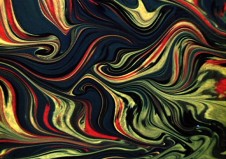
Color, by Lydia Garcia
Color
Lydia Garcia, 1955, color, sound, Uruguay.
Tango: el Narrador
Luz Zorraquín, 1991, 7 min., format TBD, Argentina
Desnudo con alcatraces
Silvia Gruner, 1986, 1:50 minutes, Super 8mm, b/w, silent, Mexico
Popsicles
Gloria Camiruaga, 1982- 1984, 4:42 min., video, USA-Chile
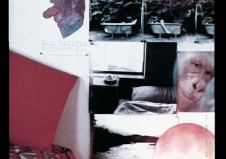
Taller
Taller
Narcisa Hirsch, 1975, 11 min, 10 min. Argentina
Paracas
Cecilia Vicuña,
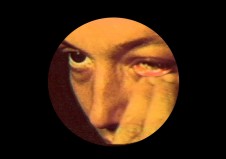
Devil in the Flesh ((El Diablo en el Piel)
Devil in the Flesh (El Diablo en el Piel)
Ximena Cuevas, 1998, 05:07, Spanish, B&W and Color, Stereo, Mexico
"The palms of Lana Turner's hands were full of scars; the technique she used in order to achieve melodrama was to tighten her fists, digging her fingernails into them until she began to cry. Day after day, soap opera actresses smear Vick's Vaporub into their eyes in order to cry. The effect of these false tears are the tears of the public. In Devil in the Flesh we see the camera's tricks, and even so the action seems dramatic. This piece once again exemplifies my fascination with the artificial: the fabricated emotions; the Christian looking for pain in order to live out Passion; the discomfort of the everyday melodrama; the emptiness that defeats everything. So, as in all my work, I am obsessed with lying's various disguises. It doesn't interest me to watch that which is not hidden. Formally, my camera documents—looking directly without shame. The possibility of the narrative levels intrigues me in the montage. My camera work is cinema verite, and my montage work cinema mentira. My intent is an emotionally borderless language.
In Devil in the Flesh, I look at myself in the mirror, but through the desolate hole of a mask, the circle is broken by the sharp biting angle of a telephone that keeps ringing. I take up the spoon again. There is no form of escape from everyday boredom. Every grammatical punctuation constitutes a search for a break in reality or an intensified state." —Ximena Cuevas, 1999
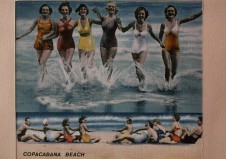
Copacabana
COPACABANA BEACH
Vivian Ostrovsky, 1983, 10:08 min., Super 8, color, sound, Brazil.
Blues Tropical
Poli Marichal, 1982, 3:30, color, sound, Format TBD, country.
